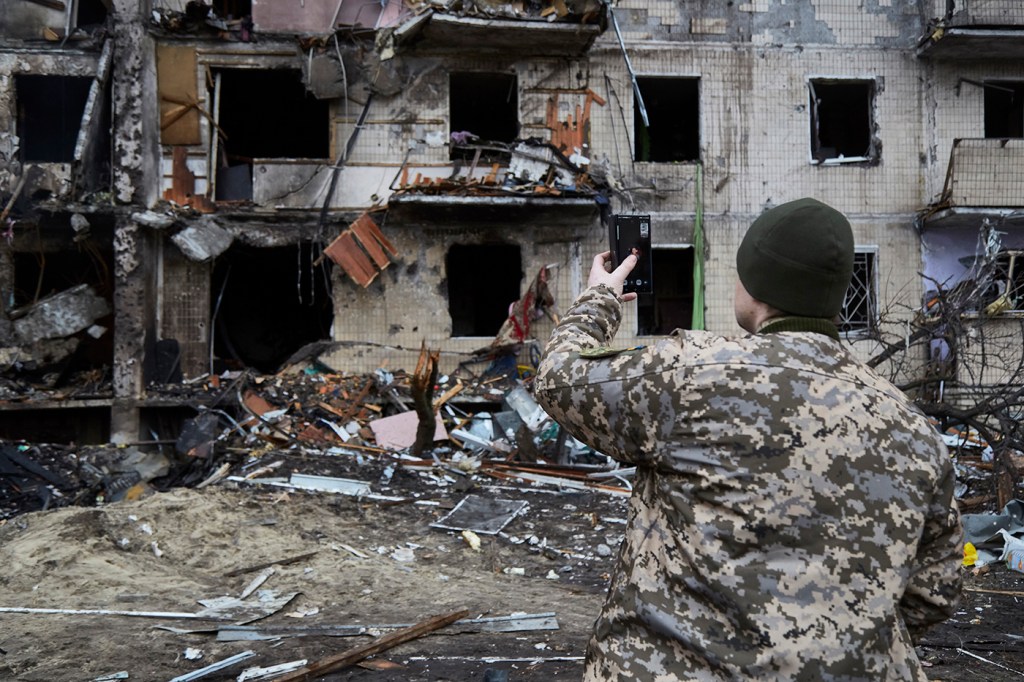Are you more likely to believe misinformation about Ukraine or COVID-19?

Russia’s invasion of Ukraine kicked up a maelstrom of misinformation—some produced by strategic Russian propaganda campaigns, and some by anonymous websites or nefarious think tanks.
This new wave of misinformation comes at a time when people in the United States and around the world are still sorting through rampant mis- and disinformation about COVID-19; indeed the World Health Organization defined the last few years as an “infodemic” of false and misleading information.

David Lazer, distinguished professor of political science and computer and information science, poses for a portrait. Photo by Adam Glanzman/Northeastern University
With so much bad information swirling like chum in the water, can people sort out what’s true and what’s not? Researchers at Northeastern University and several partner institutions found that, yes, by and large people in the U.S. can sift out misinformation about COVID-19 and Ukraine. However, they also found a strong link between believing false information about one issue and believing it about the other.
Researchers with the Covid States Project, a collaboration among Northeastern, Harvard, Northwestern, and Rutgers universities, found that relatively few (14%) people believed false claims about Ukraine—fewer than those who believe false claims about COVID-19 vaccines (18%).
Importantly, they also found that misperceptions about COVID-19 are by far the strongest predictor—more so than political affiliation, age, gender, or education level—of holding misperceptions about Ukraine. Almost half (45%) of people who hold at least one misperception of Ukraine also hold misperceptions about COVID-19 vaccines.
The researchers surveyed 22,234 people across all 50 states in the U.S. between March 2 and April 4. They published their latest findings this month.
“The question was really whether misperception and misinformation is segmented—in issues that are highly politicized, do we see increasing alignment?” says David Lazer, university distinguished professor of political science and computer sciences at Northeastern, and the lead author of the study.
Lazer and his colleagues found that the politics of the issue seem to make a difference: Republicans are 5 percentage points more likely than Democrats to believe false claims about Ukraine, but 15 percentage points more likely to believe misinformation about COVID-19. The results would seem to align with the political responses to each issue. Politicians from both parties have shown a unified front in support of Ukraine and a rebuke of Russia. By contrast, views about COVID-19, including views on vaccines, boosters, and public-health mitigation efforts, are highly split by political party.
“We’ve seen that claims about Ukraine seem to be less politically polarized than claims about COVID-19, which makes sense,” Lazer says. “We’ve seen public opinion on both the [political] right and the left rally around Ukraine.”
For media inquiries, please contact Shannon Nargi at s.nargi@northeastern.edu or 617-373-5718.





